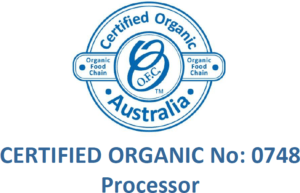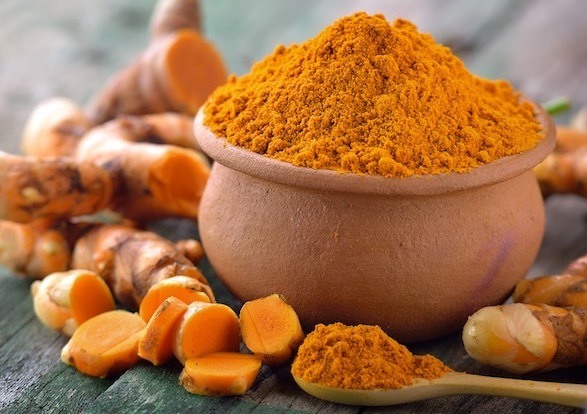Turmeric is the spice that gives curry its yellow colour, and it has been used in India and the Middle East for thousands of years. Turmeric was traditionally used in Siddha and Ayurvedic medicine to treat inflammatory conditions, skin diseases, wounds, digestive ailments and liver conditions.
It’s only recently, however, that science has started to shed more light on turmeric’s true medicinal potential.
The focus of many studies has been on curcumin, which is the main active compound in turmeric. Turmeric has so many healing properties that there have been over 6000 peer-reviewed articles published proving the benefits of turmeric, and in particular curcumin.
One of the most comprehensive summaries of turmeric studies to date was published by James A. Duke, PhD. Reviewing around 700 studies looking at turmeric benefits, Duke concluded that turmeric appears to outperform many pharmaceuticals in its effects against several chronic debilitating diseases, and does so with virtually no adverse side effects.
Turmeric is arguably the most powerful herb on the planet at fighting and potentially reversing disease.
Health Benefits of Turmeric
Research suggests that turmeric may be helpful in treating chronic inflammation, inflammatory bowel diseases, rheumatoid arthritis, lowering cholesterol counts, protecting the heart, relieving indigestion, improving liver function, preventing Alzheimer’s disease, and even preventing and treating cancer.
Curcumin is a Natural Anti-Inflammatory Compound
The most powerful use for curcumin is in reducing inflammation. One study evaluated several anti-inflammatory compounds and found that aspirin and ibuprofen are the least effective in controlling inflammation while curcumin is among the most effective in the world.
This finding is important because chronic, low-level inflammation plays a major role in almost every chronic Western disease including heart disease, cancer, metabolic syndrome, ulcerative colitis, arthritis, Alzheimer’s, and various degenerative conditions. Curcumin has the potential to prevent, and even treat, these diseases by keeping inflammation at bay.
Gastrointestinal Treatment
For many people with inflammatory bowel disease (IBS, Crohn’s disease, and Ulcerative Colitis), corticosteroids reduce their pain symptoms but damage the intestinal lining over time, actually making the condition worse. An in-depth analysis on all the studies evaluating curcumin’s ability to mange IBD found that many patients were able to stop taking their prescribed corticosteroids because their condition improved so dramatically by taking curcumin.
Arthritis Management
Most types of arthritis involve inflammation in the joints, and several studies show that curcumin can help reduce this inflammation. A study was conducted on 45 rheumatoid arthritis patients to compare the benefits of curcumin in turmeric to arthritis drugs (diclofenac sodium), that put people at risk of developing leaky gut and heart disease.
Patients treated with curcumin alone showed the highest percentage of improvement in overall scores. Curcumin treatment was found to be safe and did not relate with any adverse events.
Turmeric Increases the Antioxidant Capacity of the Body
Oxidative damage is believed to be one of the mechanisms behind ageing and many diseases. Curcumin is a potent antioxidant that can neutralise free radicals and boost the activity of the body’s own antioxidant enzymes.
Curcumin and Heart Disease
Heart disease is the world’s leading cause of death, and while there are many contributing factors to heart disease, curcumin may help reverse many of them.
Curcumin can help improve the function of the endothelium, which is the lining of the blood vessels. Endothelial dysfunction is a major driver of heart disease and involves the inability of the endothelium to regulate blood pressure, blood clotting and various other factors.
Curcumin reduces inflammation and oxidation (as discussed above) which are also linked with heart disease.
One of the reasons heart disease is such a problem in the western world is because people are developing pre-diabetes (excessive blood sugar) at an alarming rate. Also, diabetics and non-diabetics are suffering from oxidative stress which damages the inside of blood vessels. Because of this damage to the arteries, cholesterol begins to build up to patch up the damaged areas which leads to high levels of LDL cholesterol.
One study has found that curcumin is equal or more effective than diabetes medications at reducing oxidative stress and inflammation in the treatment of high cholesterol. This is good news as statin drugs like Lipitor are widely known to harm the kidneys and the liver, along with causing other harmful side effects.
Turmeric Can Help Prevent and Treat Cancer
Researchers have been studying curcumin as a beneficial herb in cancer treatment. It can affect cancer growth, development and spread at the molecular level. Studies have also shown that it can reduce angiogenesis (growth of new blood vessels in tumours), metastasis (spread of cancer), as well as contributing to the death of cancerous cells in the laboratory and inhibit the growth of tumours in test animals.
Evidence suggests that curcumin may help prevent cancer from occurring in the first place, especially cancers of the digestive system. In one study of 44 men with lesions on the colon that sometimes turn cancerous, 4 grams of curcumin per day for 30 days reduced the number of lesions by 40%.
Cancer Research UK reports that a number of laboratory studies on cancer cells have shown that curcumin does have anticancer effects. It seems to be able to kill cancer cells and prevent more from growing. It has the best effects on breast cancer, bowel cancer, stomach cancer and skin cancer cells.
A 2007 study that combined curcumin with chemotherapy to treat bowel cancer cells in a laboratory showed that the combined treatment killed more cells than the chemotherapy alone.
The American Cancer Society reports similar results- curcumin interferes with cancer development, growth, and spread. It has the ability to reduce tumour size and kills cancer cells.
James A. Duke, PhD, said the effectiveness of curcumin against certain cancers compared favourably with that reported for pharmaceuticals.
Curcumin and the Brain
Many common brain disorders such as depression and Alzheimer’s disease have been linked to decreased levels of a hormone (BDNF) that functions in the brain. Curcumin can increase brain levels of BDNF. By doing this, it may be effective in delaying or even reversing many brain diseases and age-related decreases in brain function.
Alzheimer’s disease is the most common neurodegenerative disease in the world and has been linked with inflammation and oxidative damage. It has also been linked with a buildup of protein tangles called Amyloid plaques. Studies show that curcumin reduces inflammation, oxidative damage, and clears these plaques.
Curcumin is also a promising treatment for depression, showing similar improvements in patients as those taking Prozac.
How to Get More Turmeric in Your Diet
All of the above benefits are attributed to curcumin, however some studies have indicated that whole turmeric has more benefits than curcumin in isolation, so keep this in mind when including this powerful spice in your diet.
Add Turmeric to Your Meals
Turmeric can be added to savoury dishes to add flavour and colour as well as health benefits! Add turmeric to curries, meat rubs, marinades, sauces and salad dressings.
Use a Turmeric Supplement
The curcumin content of turmeric is not very high – around 3% by weight – so taking a turmeric extract containing mostly curcumin can help boost effectiveness.
Curcumin is poorly absorbed into the bloodstream so it’s also recommended that you consume black pepper with it to enhance absorption.
Drink Turmeric Tea
Also known as Golden Milk, turmeric tea is a great way to consume turmeric daily.
Wellness Mama has a great article on turmeric tea which can be found here along with recipes.
SOURCES
https://authoritynutrition.com/top-10-evidence-based-health-benefits-of-turmeric/
https://draxe.com/turmeric-benefits/
http://www.mindbodygreen.com/0-6873/25-Reasons-Why-Turmeric-Can-Heal-You.html
https://www.davidwolfe.com/turmeric-golden-milk-before-bed/
http://foodfacts.mercola.com/turmeric.html
http://www.drweil.com/diet-nutrition/nutrition/3-reasons-to-eat-turmeric/
http://www.medicalnewstoday.com/articles/306981.php
https://wellnessmama.com/223/turmeric-tea-recipe/



